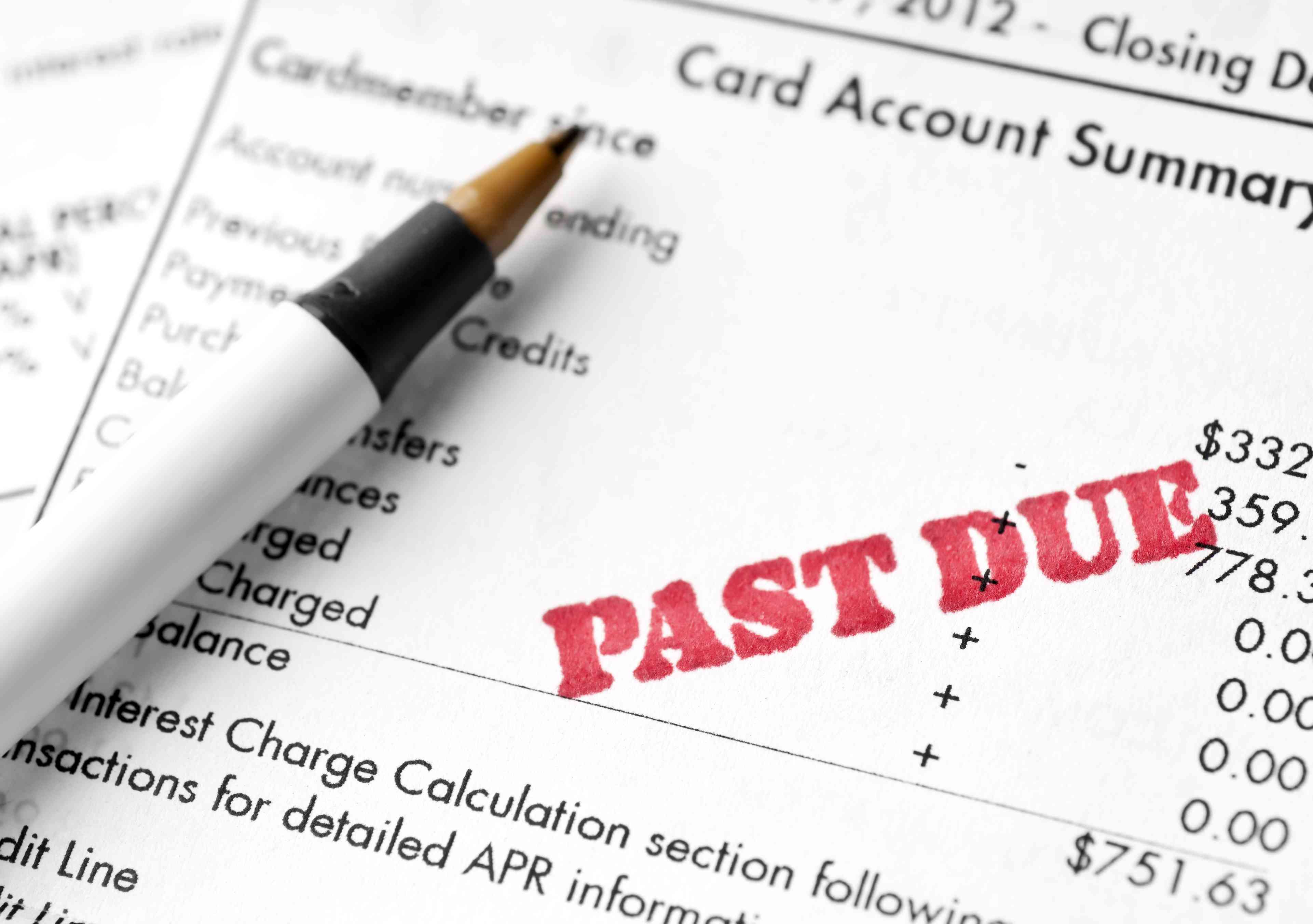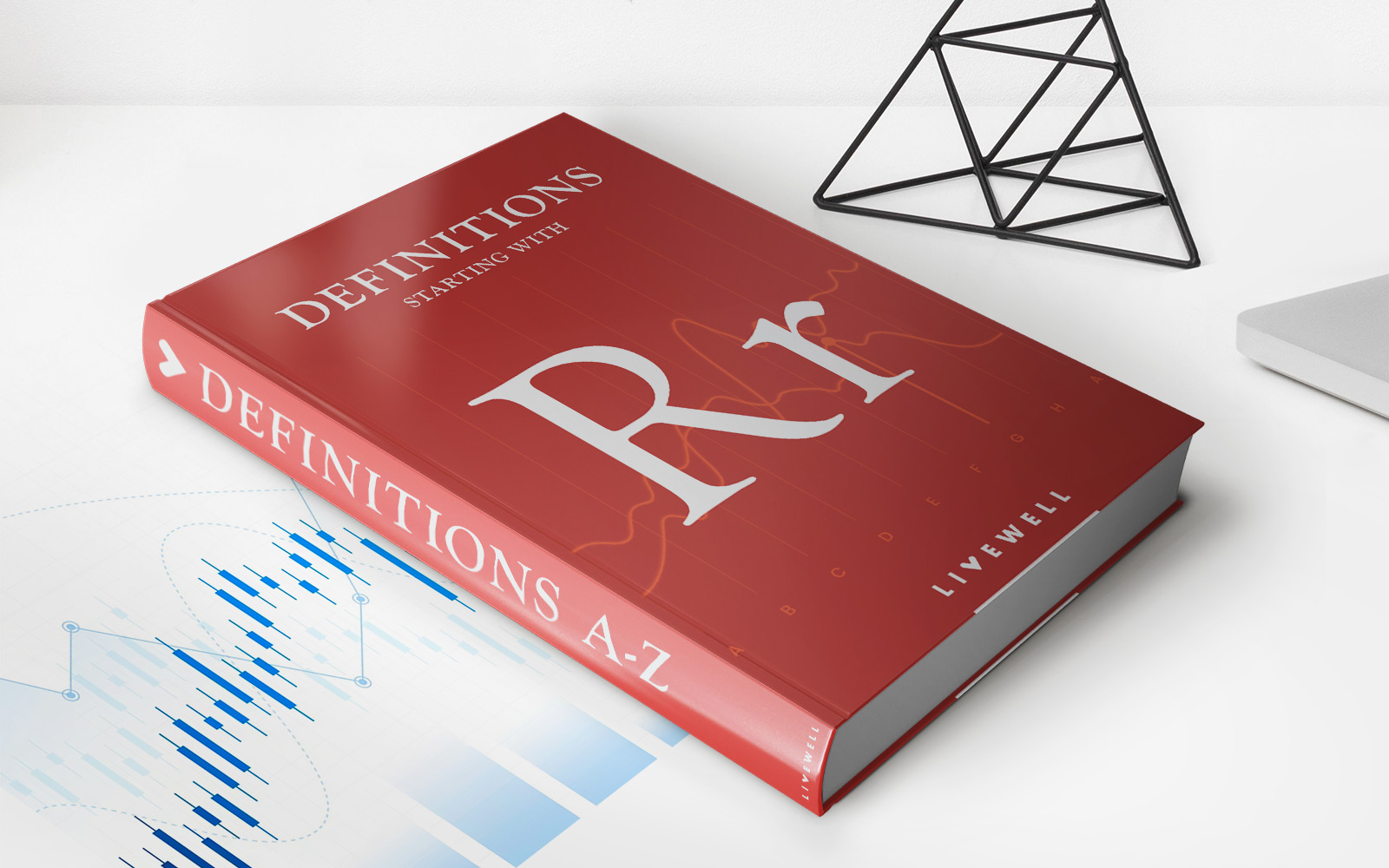

Finance
When Does Credit Card Report To Bureau
Modified: March 6, 2024
Learn when your credit card reports to the bureau to effectively manage your finances and improve your credit score
(Many of the links in this article redirect to a specific reviewed product. Your purchase of these products through affiliate links helps to generate commission for LiveWell, at no extra cost. Learn more)
Table of Contents
- Introduction
- What is a credit bureau?
- How does a credit card impact your credit report?
- Factors that determine when credit card activity is reported
- Reporting timelines for different credit card issuers
- How frequently should you check your credit report?
- Why is it important to have accurate credit reporting?
- Conclusion
Introduction
Welcome to the world of credit, where your financial history plays a vital role in determining your financial future. Whether you’re applying for a loan, renting an apartment, or even securing a job, your credit report is an important tool used by lenders, landlords, and employers to assess your creditworthiness.
One crucial aspect of credit reporting is understanding when and how your credit card activity is reported to the credit bureaus. Credit bureaus are agencies that collect and maintain credit information on individuals, compiling it into a credit report which is then used to calculate your credit score. This information is submitted by various creditors, including credit card issuers.
In this article, we will shed light on the process of credit reporting and explore how credit card activity influences your credit report. We will delve into the factors that determine when credit card activity is reported, the reporting timelines of different credit card issuers, and the importance of regularly checking your credit report for accuracy.
Understanding the credit reporting process and being aware of when and how your credit card activity is reported can empower you to make informed financial decisions and take proactive steps to build and maintain a healthy credit profile. So, let’s explore the world of credit card reporting and its impact on your credit report.
What is a credit bureau?
A credit bureau, also known as a credit reporting agency, is a company that collects and maintains credit information on individuals and businesses. These bureaus gather data from various sources, including financial institutions, credit card issuers, collection agencies, and public records, and compile it into a credit report. The information in your credit report is then used by lenders, landlords, employers, and other institutions to evaluate your creditworthiness.
There are three major credit bureaus in the United States: Equifax, Experian, and TransUnion. Each bureau operates independently of one another and may have slightly different information on your credit report. It is essential to review your credit report from all three bureaus to ensure accuracy and identify any discrepancies.
Credit bureaus collect a wide range of financial information on individuals, including their payment history, outstanding debts, account balances, and public records such as bankruptcies and tax liens. This information is then used to calculate your credit score, a numerical representation of your creditworthiness.
It is important to note that credit bureaus do not make lending decisions or determine whether you qualify for credit. Instead, they provide the information necessary for lenders to assess your creditworthiness and make informed decisions based on their own criteria.
Having a good credit report is crucial as it can open doors to better financial opportunities, such as lower interest rates on loans and credit cards, higher credit limits, and favorable terms when renting or buying a property. On the other hand, a negative credit report with late payments, high debt utilization, or collection accounts can limit your access to credit and result in higher interest rates and fees.
Now that we have a basic understanding of what a credit bureau is, let’s explore how credit card activity influences your credit report.
How does a credit card impact your credit report?
A credit card can have a significant impact on your credit report and credit score. When you use a credit card, your payment activity and credit utilization are reported to the credit bureaus, providing them with valuable information about your creditworthiness. Understanding how credit card activity affects your credit report is crucial for maintaining a healthy credit profile.
Positive credit card activity, such as making timely payments, can have a positive impact on your credit report. Timely payments demonstrate your ability to manage credit responsibly and can help improve your credit score over time. Conversely, late or missed payments can have a negative impact on your credit report, as they suggest a higher risk of defaulting on credit obligations.
In addition to payment history, credit utilization is another important factor that is influenced by credit card activity. Credit utilization refers to the percentage of your available credit that you are currently using. Keeping your credit utilization low, ideally below 30%, demonstrates responsible credit management and can positively impact your credit score.
For example, if you have a credit card with a $5,000 limit and you have a balance of $1,500, your credit utilization would be 30%. However, if you increase your balance to $4,000, your credit utilization would rise to 80%, which could negatively impact your credit score.
It’s important to note that not all credit card activity is directly reported to the credit bureaus. Some issuers report your payment history, credit limit, and outstanding balance to the bureaus on a monthly basis, while others may report it every few months. This variation can impact how quickly changes in your credit card activity are reflected on your credit report.
Furthermore, credit card issuers may not report certain activities, such as credit limit increases or decreases, promotional offers, or changes in interest rates. These factors typically do not affect your credit report directly, but they can indirectly impact your creditworthiness by affecting your ability to manage your credit effectively.
Now that we understand how a credit card impacts your credit report, let’s explore the factors that determine when credit card activity is reported to the credit bureaus.
Factors that determine when credit card activity is reported
The timing of when your credit card activity is reported to the credit bureaus can vary depending on several factors. Understanding these factors can help you anticipate when updates will appear on your credit report and make informed decisions about your credit card usage.
1. Billing cycle: The reporting of credit card activity is usually tied to your billing cycle. Most credit card issuers report your payment history, balances, and credit utilization to the credit bureaus at the end of each billing cycle. This means that any changes or updates to your credit card activity during the billing cycle will be reflected on your credit report at the end of that cycle.
2. Statement date: The statement date is the date on which your credit card statement is generated. Typically, credit card issuers report your activity based on the information provided on your statement. This includes your outstanding balance, credit limit, and any payments made. Therefore, any payments made or purchases made after the statement date will not be reported until the next billing cycle.
3. Reporting dates: Each credit card issuer has its own reporting schedule. Some report to the credit bureaus once a month, while others may report more frequently. These reporting dates can vary depending on the issuer’s internal processes and systems. It’s important to note that the reporting dates may not coincide with your billing cycle or statement date, so it’s worth checking with your credit card issuer to understand their specific reporting schedule.
4. Credit bureau processing time: After the credit card issuer reports your activity to the credit bureaus, there is a period of time before the information is updated on your credit report. This processing time can vary depending on the credit bureau and the volume of data they receive. Generally, it takes a few days to a few weeks for the information to be reflected on your credit report.
It’s important to keep these factors in mind when managing your credit card activity. By understanding when your credit card activity is reported, you can plan your payments, monitor your credit utilization, and ensure that your credit report accurately reflects your financial behavior. Regularly checking your credit report will help you stay updated on any changes and address any errors or discrepancies that may arise.
Next, let’s delve into the reporting timelines of different credit card issuers and how frequently you should check your credit report.
Reporting timelines for different credit card issuers
The reporting timelines for credit card issuers can vary depending on their internal processes and policies. While most credit card issuers report to the credit bureaus on a monthly basis, it’s important to be aware of any variations that may exist. Here are some common reporting timelines for different credit card issuers:
1. Monthly reporting: Many credit card issuers report your credit card activity to the credit bureaus once a month. Typically, this reporting occurs at the end of your billing cycle or around the statement date. This means that any changes or updates to your credit card activity during this period will be reflected on your credit report at the end of the billing cycle.
2. Mid-cycle reporting: Some credit card issuers provide mid-cycle reporting to the credit bureaus. This means that they report your credit card activity at a certain point between your billing cycles. The exact timing of mid-cycle reporting can vary, so it’s important to check with your credit card issuer for specific details.
3. Payer reporting: In addition to regular reporting, credit card issuers may also report payment behavior more frequently. This is known as payer reporting. Payer reporting allows credit card issuers to update the credit bureaus on whether you made your payments on time or if you missed any payments. This information can have a significant impact on your credit score, so it’s important to make timely payments to maintain a positive credit history.
It’s worth noting that not all credit card issuers report activity to all three major credit bureaus (Equifax, Experian, and TransUnion). While many issuers report to all three, some may only report to one or two bureaus. This can result in variations in your credit report across different bureaus. Monitoring your credit report from all three bureaus can help ensure that you have a comprehensive view of your credit history.
To get specific information about the reporting timeline for your credit card, it’s best to contact your credit card issuer directly. They can provide you with details about when they report your credit card activity and any other relevant information specific to your account.
Now that we understand the reporting timelines of different credit card issuers, let’s discuss how frequently you should check your credit report.
How frequently should you check your credit report?
Checking your credit report regularly is an essential part of maintaining a healthy credit profile. It allows you to stay informed about your financial status and ensures the accuracy of the information being reported. But how frequently should you check your credit report?
Experts recommend checking your credit report at least once a year. By doing so, you can catch any errors or discrepancies that may negatively impact your credit score and address them promptly. It’s also an opportunity to identify potential signs of identity theft or fraudulent activity.
However, in certain situations, it may be beneficial to check your credit report more frequently:
- Before applying for credit: If you’re planning to apply for a loan, mortgage, or credit card, it’s advisable to review your credit report beforehand. This allows you to ensure that the information is accurate and gives you a chance to address any issues or discrepancies that may hinder your creditworthiness.
- After major life events: Significant life events, such as getting married, buying a house, or going through a divorce, can impact your credit. Checking your credit report after these events can help you assess any changes and take appropriate steps to manage your credit effectively.
- When suspicious activity is detected: If you receive alerts or notice any suspicious activity related to your credit accounts, it’s crucial to check your credit report immediately. This can help you identify any unauthorized accounts or fraudulent transactions and take swift action to protect your credit.
Fortunately, accessing your credit report is easy and free. Under federal law, you are entitled to one free copy of your credit report from each of the three major credit bureaus—Equifax, Experian, and TransUnion—every 12 months. You can order these reports online at AnnualCreditReport.com, the only authorized website for free credit reports.
Additionally, some credit monitoring services offer free or paid subscriptions that provide regular access to your credit report and notifications of any changes or updates. These services can be valuable for those who want more frequent monitoring and alerts.
Maintaining awareness of your credit report allows you to proactively manage your credit and make informed financial decisions. By checking your credit report regularly, you can stay on top of your credit health and take the necessary steps to achieve and maintain a strong credit profile.
Next, let’s explore the importance of having accurate credit reporting.
Why is it important to have accurate credit reporting?
Having accurate credit reporting is crucial for several reasons. Your credit report is a reflection of your financial history and serves as a basis for lenders, landlords, employers, and other institutions to assess your creditworthiness. Here are some key reasons why accurate credit reporting is important:
1. Access to credit: Your credit report plays a significant role in determining whether you can access credit and at what terms. Lenders rely on your credit report to evaluate your creditworthiness and make informed decisions about granting you loans or credit. A positive credit report with accurate information increases your chances of securing credit at favorable interest rates and terms.
2. Loan approvals: When applying for a mortgage, auto loan, or personal loan, lenders review your credit report to assess your credit risk. Inaccurate information, such as erroneous late payments or accounts in collection, can negatively impact your creditworthiness and result in loan denials or higher interest rates.
3. Rental applications: Landlords often request a copy of your credit report when you apply for a rental property. Inaccuracies in your credit report, such as incorrect payment history or outstanding balances, can lead to rejections or require additional explanations.
4. Employment opportunities: Some employers perform credit checks as part of their background screening process, especially for roles that involve financial responsibilities or access to sensitive information. Inaccurate derogatory information on your credit report could potentially impact your chances of securing certain job opportunities.
5. Identity theft detection: Reviewing your credit report regularly allows you to detect signs of identity theft or fraudulent activity. Inaccurate accounts, unfamiliar inquiries, or sudden changes in your credit report can indicate potential fraud. By addressing these issues promptly, you can take the necessary steps to protect your identity and minimize potential financial damage.
6. Dispute resolution: Inaccurate information on your credit report can lead to lower credit scores and limited access to credit. By regularly reviewing your credit report, you can identify any errors or discrepancies and file disputes with the credit bureaus to rectify them. Correcting inaccurate information can help improve your credit score and overall creditworthiness.
7. Financial planning: Accurate credit reporting provides you with a clear picture of your financial standing and enables effective financial planning. By understanding the information on your credit report, you can identify areas for improvement, set financial goals, and work towards building a strong credit profile.
Overall, having accurate credit reporting is essential for maintaining a positive financial reputation and maximizing your financial opportunities. Regularly reviewing your credit report and addressing any inaccuracies can help ensure that your creditworthiness is accurately represented.
Now, let’s summarize the key points discussed in this article.
Conclusion
Understanding how credit card activity impacts your credit report is essential for maintaining a healthy financial profile. Credit card activity, such as payment history and credit utilization, can have a significant impact on how lenders perceive your creditworthiness. It’s important to be aware of the factors that determine when credit card activity is reported and to regularly check your credit report for accuracy.
Credit bureaus play a vital role in collecting and maintaining credit information, which is used to calculate your credit score. By reporting timely payments, keeping your credit utilization low, and managing your credit responsibly, you can positively influence your credit report and credit score.
The reporting timelines for credit card issuers can vary, so it’s crucial to understand when your credit card activity is reported. This information can help you plan your payments, monitor your credit utilization, and ensure that your credit report accurately reflects your financial behavior.
Checking your credit report at least once a year is recommended to catch any errors or discrepancies that may affect your creditworthiness. However, certain situations, such as before applying for credit or after major life events, may warrant more frequent monitoring.
Having accurate credit reporting is crucial for accessing credit, securing loan approvals, and even job opportunities. Accurate credit information allows you to identify and address potential identity theft or fraudulent activity. It also empowers you to file disputes and correct any inaccuracies on your credit report, improving your overall creditworthiness.
In conclusion, by understanding the impact of credit card activity on your credit report, staying informed about reporting timelines, and regularly checking your credit report for accuracy, you can effectively manage your credit and build a strong financial foundation. Make it a habit to review your credit report, take proactive measures to address any issues, and work towards achieving and maintaining a positive credit profile.














